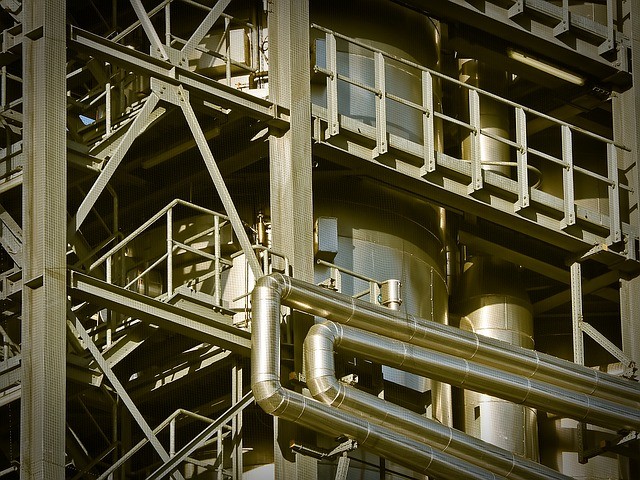Material Handling Process Explained
05-29-19

Material Handling Process
From bringing in raw materials for manufacturing, through that manufacturing process, to warehousing and distribution, the material handling process is what keeps materials and products moving.
The material handling process specifically refers to how materials are stored, organized, treated, moved, and otherwise processed on a smaller scale, within a building or from a transport vehicle to a building and vice versa. It does not refer to what happens once a product is moved on to a new location or to a customer, making it highly focused on the inner workings of a business and its facilities and processes.
The material handling process may involve many different types of equipment and technologies, across various industries and applications from manufacturing to aerospace to construction. Material handling equipment like conveyors, elevators, gates, and bag dump stations are commonplace, and in most situations, the material handling process involves valves of some sort, to control and divert the flow of materials.
The Material Handling Process and Valves
With such a variety of materials going through the material handling process, valves play an important role — and the selection of those valves is key. Materials may be tough, corrosive, or otherwise challenging, and the materials, seals, and durability of valves needs to be considered when creating a process.
For example, if your company’s material handling process involves coarse materials your valves need to have the right clearance for that flow, or risk jams that can shut the entire process down. Sticky materials, dusty materials, and other challenging substances all require a careful look at which valves will do the job well.
The service life of a valve involved in the material handling process is also important. If your valves are constantly jamming, breaking, sealing too loosely, or otherwise creating issues, the entire process can become backlogged or worse, grind to a total halt. That puts every other part of the manufacturing and distribution process at risk, which in turn has a negative impact on productivity, profitability, and reputation.
Looking at the life cycle of material handling equipment is important in this regard — it may cost more to invest in better quality products for processing and handling materials, but if that investment leads to cost savings and/or higher profitability in the long term, it’s likely worth spending more up front for better results in the end than it is to save a bit of money in the immediate present but have to keep spending that money on a regular basis as sub-par parts fail.
Challenging materials and tough conditions are a reality for many industries, but that does not mean that a smooth, effective material handling process is impossible. Instead of despairing, we suggest you invest in valves that are not only designed to work in harsh environments, but actually work better the more they are used. That is what Everlasting Valves products do, and when you switch to these unique valves you will find that frustrating materials processing problems quickly become a thing of the past.
Everlasting Valves and Material Handling
All of our valves, for all purposes and industries, feature our innovative self-cleaning, self-lapping technology, with a rotating disc that ensures each valve lasts for a very long time and provides superior performance even in the most challenging applications.
Our valves overcome the common issue of seats wearing out owing to sealing surfaces meeting at the same point, with the rotating disc and self-lapping action that ensures seats wear in and the seal improves with use. Our valves are made with spring-loaded packing and a non-rising rotating stem, which keeps product from being lost through the packing gland or top seal.
In situations where thermal lock-up has been a problem, that same spring-loaded action provides constant yield to thermal stress and shock versus the intolerance to different expansion rates that many typical valves experience. Our valves work perfectly in temperatures up to 1500+ F, and pressures to 10,000 psig.
We also manufacture bulk material valves, specifically designed for handling large amounts of materials, even those that are dry or abrasive.
The result of using our valves is a material handling process that is more reliable than a process constructed with typical, cheap valves that fail frequently and require replacement on a regular basis. If you are replacing your valves even once a year, Everlasting Valves can have a positive impact on your company’s productivity and profitability.
Get in touch with us today to find out more about what we can do for your business! Give us a call at 908-769-0700, or email us at [email protected]. You can also send us a request through our convenient online form, and a member of our team will get back to you with the details you need.